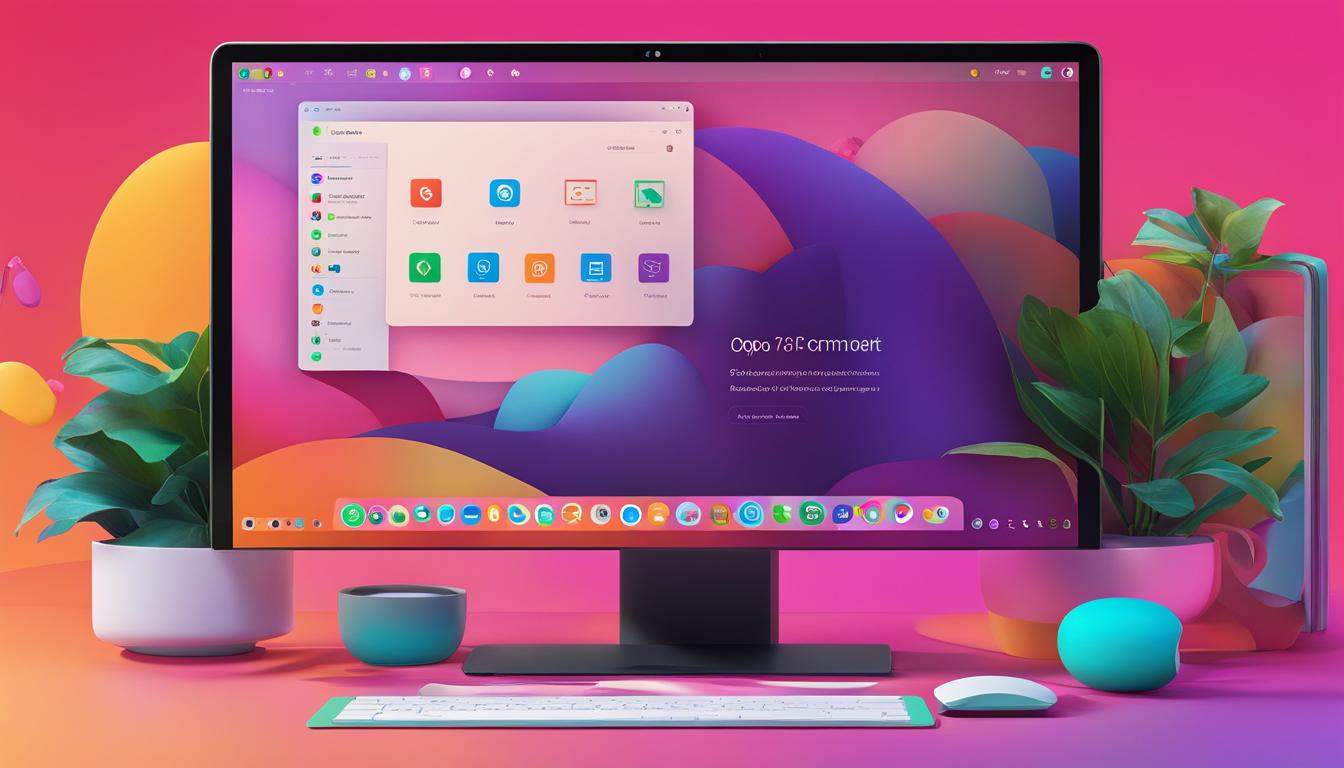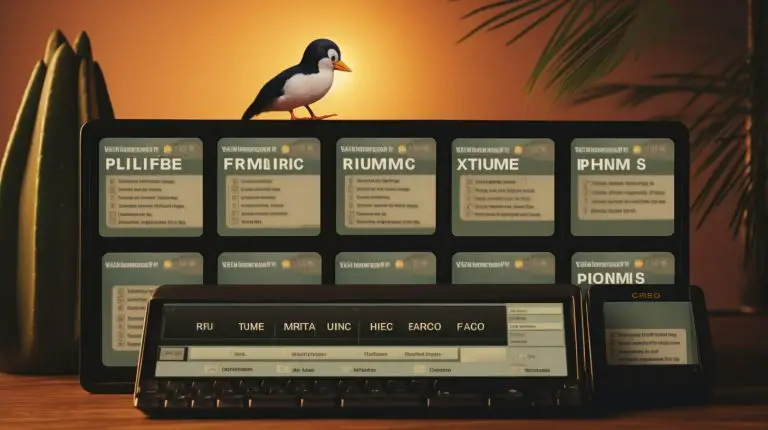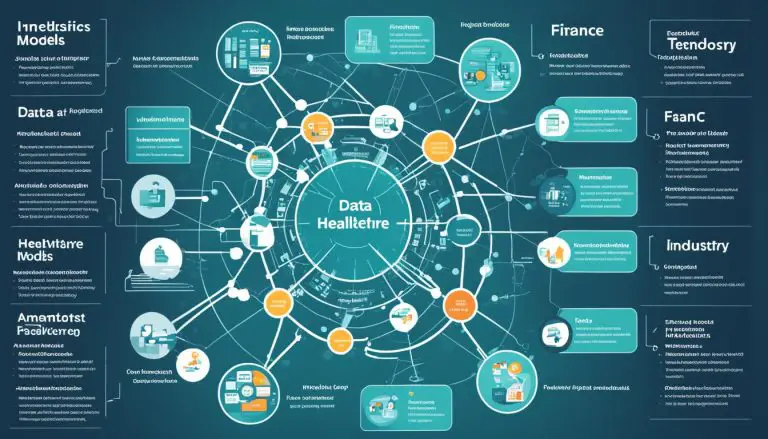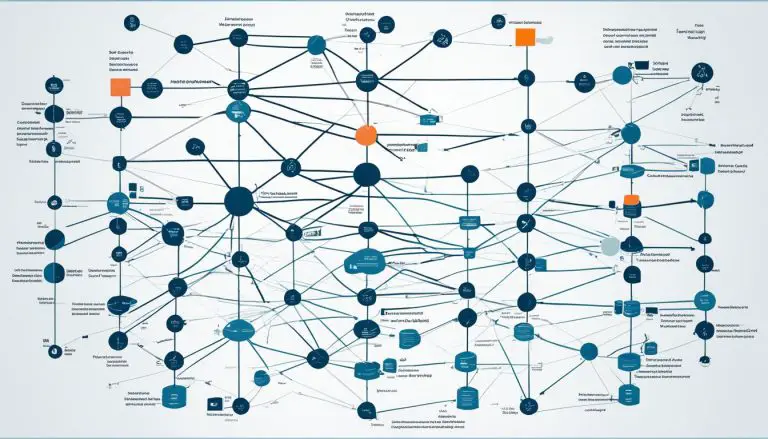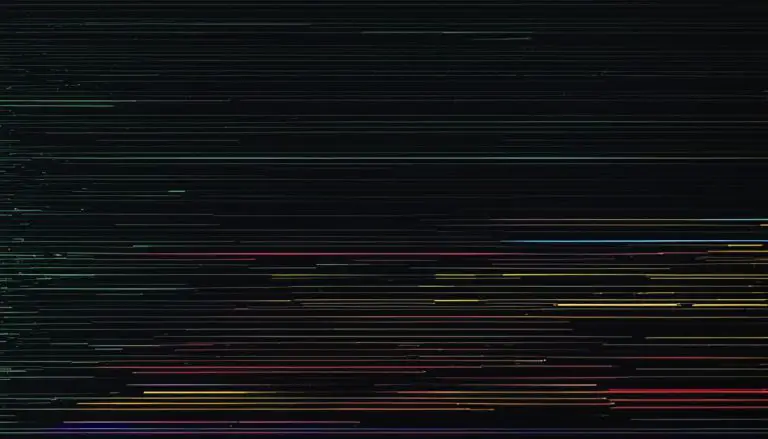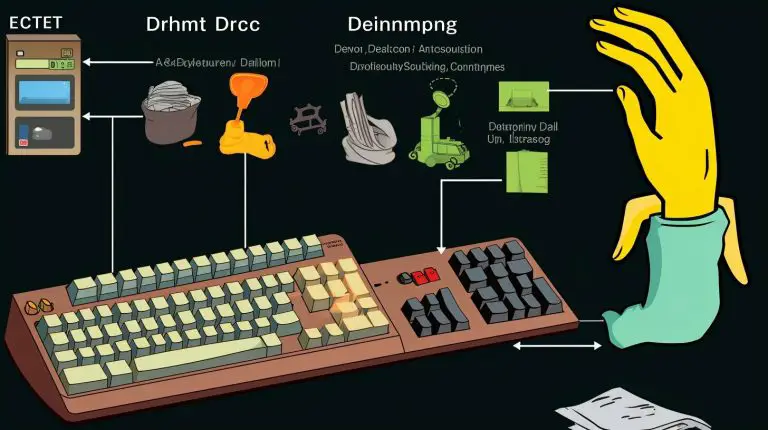Exploring What is Pop!_OS: A Comprehensive Guide
Welcome to this comprehensive guide on Pop!_OS, a Linux-based operating system developed and maintained by System76. In this article, I will provide an overview of what Pop!_OS is, its key features, and an installation guide. Whether you’re new to Pop!_OS or considering switching to it, this guide will give you a deeper understanding of this powerful operating system.
Pop!_OS offers a polished, user-friendly, and performance-oriented Linux experience. It was introduced in 2017 as a response to the discontinuation of Unity, the default desktop environment for Ubuntu. Pop!_OS uses a heavily customized version of GNOME, ensuring a smooth and intuitive user interface.
With regular updates, Pop!_OS stays fresh with new features and improvements. It is widely used for personal computing, software development, scientific computing, creative work, and gaming. Pop!_OS’s user-friendly interface, performance optimization, and excellent hardware support are some of its key strengths.
Key Takeaways:
- Pop!_OS is a Linux-based operating system developed and maintained by System76.
- It offers a polished, user-friendly, and performance-oriented Linux experience.
- Pop!_OS uses a heavily customized version of GNOME and has regular updates.
- It is widely used for personal computing, software development, scientific computing, creative work, and gaming.
- Pop!_OS excels in its user-friendly interface, performance optimization, and excellent hardware support.
Origins and Evolution of Pop!_OS
Pop!_OS, developed by System76, was introduced in 2017 as a response to the discontinuation of Unity, the default desktop environment for Ubuntu. Instead of adopting GNOME as is, System76 created Pop!_OS with a heavily customized version of GNOME designed for better user experience and to showcase their hardware capabilities.
In order to stay up-to-date with the latest features, improvements, and security patches, System76 releases new versions of Pop!_OS approximately every six months, in sync with Ubuntu’s release cycle. This regular update schedule ensures that Pop!_OS remains fresh and relevant.
System76’s expertise in hardware manufacturing has played a significant role in Pop!_OS’s evolution. By closely integrating their software with their own machines, System76 ensures excellent hardware compatibility and support. This tight integration allows for a seamless user experience and enhances the performance of Pop!_OS on System76 systems.
Overall, Pop!_OS has evolved into a user-friendly and performance-oriented Linux operating system, with regular updates and strong hardware support, making it a popular choice among Linux enthusiasts and professionals alike.
Pop!_OS Version History
| Version | Date | Notable Features |
|---|---|---|
| Pop!_OS 17.10 | October 19, 2017 | Initial release |
| Pop!_OS 18.04 LTS | April 26, 2018 | Long-term support release with improved performance and updated software stack |
| Pop!_OS 18.10 | October 18, 2018 | Improved user interface, GNOME 3.30, hardware support enhancements |
| Pop!_OS 19.04 | April 18, 2019 | Performance optimizations, new installer, improved firmware updates |
| Pop!_OS 19.10 | October 17, 2019 | Improved graphics support, firmware updates through the Pop!_Shop |
| Pop!_OS 20.04 LTS | April 30, 2020 | Long-term support release with updated kernel, GNOME 3.36, and various performance improvements |
Applications of Pop!_OS
Pop!_OS is a versatile operating system that finds applications in various contexts, catering to the needs of different user groups. Its user-friendly interface, performance optimization, and excellent hardware support make it a preferred choice for a wide range of tasks.
Personal Computing
Pop!_OS is ideal for personal computing tasks such as web browsing, office work, and media consumption. Its intuitive design and polished interface provide a seamless experience for everyday users. Whether you’re checking emails, managing documents, or streaming videos, Pop!_OS offers a reliable and efficient platform.
Software Development
Pop!_OS is highly regarded among developers due to its advanced window management features, excellent hardware compatibility, and a suite of developer tools. The operating system provides a conducive environment for coding and software development, allowing developers to focus on their projects without any distractions.
Scientific Computing
Pop!_OS is widely used in the field of scientific computing for research and data analysis. Its performance optimization and support for scientific software packages make it a valuable tool for scientists, researchers, and academics. Whether you’re running simulations, analyzing complex datasets, or conducting experiments, Pop!_OS provides the necessary computing power and stability.
Creative Work
Pop!_OS offers comprehensive support for professional-grade creative software, making it an excellent choice for graphic designers, animators, and video editors. The operating system’s performance-oriented nature ensures smooth and efficient workflow, allowing creative professionals to bring their visions to life.
Gaming
Pop!_OS’s emphasis on performance optimization and out-of-the-box support for NVIDIA graphics makes it appealing to gamers. With Pop!_OS, gamers can enjoy smooth gameplay, high frame rates, and excellent compatibility with various gaming peripherals. The operating system is continuously updated to provide the latest gaming features and improvements.
Whether you’re a casual user, a software developer, a scientist, a creative professional, or a gamer, Pop!_OS offers a versatile and reliable operating system to meet your specific needs.
Advantages of Pop!_OS
Pop!_OS offers several key advantages that set it apart from other operating systems. From its user-friendly interface to its performance-oriented design and excellent hardware support, Pop!_OS delivers a seamless computing experience for a wide range of users.
1. User-Friendly Interface
Pop!_OS features a clean and intuitive interface that is easy to navigate, making it accessible for both new and experienced users. The desktop environment is designed with a focus on simplicity and efficiency, allowing users to quickly and efficiently perform tasks. With its sleek design and well-organized layout, Pop!_OS provides a visually appealing and user-friendly experience.
2. Performance-Oriented Design
One of the standout features of Pop!_OS is its performance optimization. The operating system is designed to be resource-efficient, ensuring fast boot times and smooth overall performance. Whether you’re running basic applications or demanding tasks, Pop!_OS is optimized to deliver a seamless and responsive experience.
3. Excellent Hardware Support
Pop!_OS offers exceptional hardware compatibility and support, particularly for System76’s machines. The operating system is specifically tailored to work seamlessly with System76 hardware, ensuring a hassle-free experience for users. Additionally, Pop!_OS provides a separate ISO with pre-installed NVIDIA drivers, offering out-of-the-box support for users with NVIDIA graphics cards.
| Advantages | Description |
|---|---|
| User-Friendly Interface | Pop!_OS features a clean and intuitive interface that is easy to navigate, making it accessible for both new and experienced users. |
| Performance-Oriented Design | Pop!_OS is optimized to deliver a seamless and responsive experience, with fast boot times and efficient resource usage. |
| Excellent Hardware Support | Pop!_OS offers exceptional hardware compatibility and support, particularly for System76’s machines, making it a reliable choice for users. |
Limitations of Pop!_OS
While Pop!_OS offers a multitude of advantages, it’s important to consider its limitations as well. Understanding these limitations will help you make an informed decision about whether Pop!_OS is the right operating system for your needs.
Software Availability
One potential limitation of Pop!_OS is software availability. While the official repositories for Pop!_OS offer a wide range of software, it may not include all the applications that are available for other Linux distributions, such as Ubuntu. This could be a concern if you rely heavily on specific software that is not readily available in Pop!_OS’s repositories.
Learning Curve
Another aspect to consider is the learning curve associated with using Pop!_OS. If you’re migrating from another operating system or are new to Linux, you may need some time to get acquainted with Pop!_OS’s unique features and interface. However, once you become familiar with the system, you’ll be able to take full advantage of its capabilities.
Enterprise Support
Pop!_OS may not offer the same level of comprehensive enterprise support as more established enterprise-focused distributions. If your organization relies heavily on specialized enterprise software or requires extensive technical support, you may want to consider other options that are specifically tailored to enterprise needs.
| Limitation | Explanation |
|---|---|
| Software Availability | Pop!_OS’s official repositories may not include all the software available for other Linux distributions, limiting your choices. |
| Learning Curve | Users migrating from other operating systems or new to Linux may require some time to get accustomed to Pop!_OS’s unique features and interface. |
| Enterprise Support | Pop!_OS’s enterprise support may not be as extensive as more established enterprise-focused distributions, potentially impacting organizations with specialized needs. |
Conclusion
Pop!_OS is a versatile and user-friendly Linux-based operating system that excels in delivering a polished and performance-oriented computing experience. With its emphasis on customization, Pop!_OS offers a unique interface that enhances user productivity and enjoyment. Its compatibility with a wide range of hardware, particularly System76’s machines, ensures seamless integration and optimal performance.
Whether you are a casual user, a software developer, a scientist, or a creative professional, Pop!_OS caters to diverse needs and use cases. Its feature-rich environment, coupled with robust hardware support, makes it a preferred choice for various applications. From web browsing and office work to scientific computing and graphic design, Pop!_OS offers comprehensive support for an array of tasks.
Pop!_OS’s commitment to continuous improvement is evident through regular updates that keep the operating system fresh with new features and security patches. System76’s active support platform and the open-source community provide avenues for assistance and resources. Pop!_OS’s documentation is thorough and user-friendly, ensuring users can effectively navigate and make the most of the operating system.
In summary, Pop!_OS is a powerful and reliable Linux-based operating system that prioritizes user experience, performance, and hardware compatibility. Its innovation and dedication to continuous improvement make it a compelling choice for those seeking an intuitive and versatile computing environment.

Pop!_OS Installation Guide
Installing Pop!_OS is a straightforward process that can be completed in a few simple steps. Follow this guide to successfully install Pop!_OS on your computer and start enjoying its user-friendly and performance-oriented features.
To begin, you will need to create a live USB drive with the Pop!_OS installation files. Use tools like balenaEtcher or Rufus to create the live USB drive from the downloaded ISO file. The live USB drive will allow you to boot your computer and start the installation process.
Once you have the live USB drive, insert it into your computer and restart it. During the boot process, you may need to access the boot menu by pressing a specific key (such as F12 or ESC, depending on your computer’s manufacturer). Select the USB drive as the boot option to begin the installation.
| System76 | AMD/Intel | |
|---|---|---|
| Version | Pop!_OS NVIDIA | Pop!_OS AMD/Intel |
| Hardware | System76 machines and NVIDIA graphics cards | Non-System76 machines with AMD/Intel graphics cards |
During the installation process, you will be prompted to choose the appropriate version of Pop!_OS based on your hardware. If you have a System76 machine or an NVIDIA graphics card, select the “Pop!_OS NVIDIA” version. For non-System76 machines with AMD or Intel graphics cards, choose the “Pop!_OS AMD/Intel” version.
Follow the on-screen instructions to specify details such as language, country, and keyboard layout. You will be asked to provide your name, username, and set a password for your user account. You can also choose to encrypt the drive for added security. Once you have completed these steps, the installation process will begin.
After the installation is complete, you can safely remove the live USB drive and restart your computer. You will then be able to log in to your newly installed Pop!_OS and start exploring its user-friendly interface, performance optimizations, and excellent hardware support.
Pop!_OS Installation Guide Summary:
- Create a live USB drive using tools like balenaEtcher or Rufus.
- Insert the live USB drive into your computer and restart it.
- Access the boot menu and select the USB drive as the boot option.
- Choose the appropriate version of Pop!_OS based on your hardware (System76/NVIDIA or AMD/Intel).
- Follow the on-screen instructions to specify settings and complete the installation process.
- Remove the live USB drive and restart your computer.
- Log in to your newly installed Pop!_OS and start using its features.
Pop!_OS System Requirements
Before installing Pop!_OS, it is important to ensure that your computer meets the necessary system requirements. This will ensure optimal performance and compatibility with the operating system. Here are the hardware requirements for Pop!_OS:
- 64-bit x86 CPU (any 64-bit Intel or AMD CPU)
- At least 4 GB of RAM (recommended)
- Minimum of 20 GB of storage for the operating system
These requirements are designed to accommodate a wide range of computer setups and provide a smooth experience when using Pop!_OS. Additionally, having a 4 GB USB drive will be useful for creating a live USB drive for the installation process.
Pop!_OS is specifically optimized for System76’s machines, ensuring excellent hardware compatibility and support. However, it can also be installed on other systems that meet the minimum requirements.
Pop!_OS System Requirements
Pop!_OS is designed to take advantage of modern hardware capabilities and offers a seamless experience on compatible systems. By meeting the system requirements, you can fully enjoy the features and benefits that Pop!_OS has to offer.
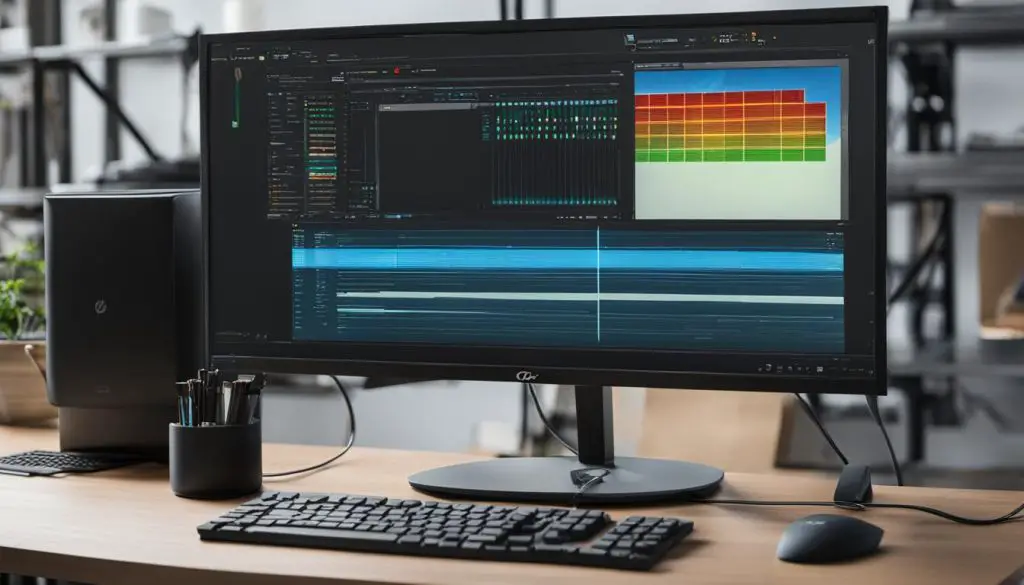
| Hardware | Minimum Requirement |
|---|---|
| CPU | 64-bit x86 CPU (any 64-bit Intel or AMD CPU) |
| RAM | At least 4 GB (recommended) |
| Storage | Minimum of 20 GB |
As Pop!_OS is updated regularly with new features and improvements, it is recommended to periodically review the system requirements to ensure compatibility with future updates. By meeting the system requirements, you can have a smooth and optimized experience with Pop!_OS.
Pop!_OS Support and Updates
System76 provides comprehensive support for Pop!_OS through various channels. If you encounter any issues or have questions, you can reach out to System76’s dedicated support platform. Their team is knowledgeable and responsive, ensuring that you receive the assistance you need in a timely manner. Whether you’re using a System76 laptop or desktop, they are committed to resolving any technical issues that may arise during your Pop!_OS experience.
Pop!_OS benefits from an active and vibrant open-source community. There are forums and subreddits dedicated to Pop!_OS, where you can engage with other users, share experiences, and seek advice. The community is a valuable resource for troubleshooting, learning new tips and tricks, and discovering innovative ways to enhance your Pop!_OS usage.
As an evolving and constantly improving operating system, Pop!_OS receives regular updates from System76. These updates include new features, performance improvements, and security patches. By staying up-to-date with the latest updates, you can ensure that your system is optimized, secure, and equipped with the latest enhancements. System76’s commitment to continuous improvement ensures that Pop!_OS remains a cutting-edge and reliable Linux-based operating system.
Pop!_OS Documentation
In addition to support and updates, System76 provides comprehensive documentation for Pop!_OS. The documentation serves as a valuable resource for both beginners and experienced users. It covers various aspects of using and customizing Pop!_OS, including installation guides, system requirements, customization options, and troubleshooting tips.
The documentation is well-organized and easy to navigate, making it a valuable reference for any questions or issues you may have. Whether you’re looking for guidance on specific features or want to explore advanced customization options, the documentation provides clear and concise instructions to help you make the most out of your Pop!_OS experience.
Download Pop!_OS
If you are interested in trying out Pop!_OS, you can easily download it from System76’s website. Simply visit their website and navigate to the download page. There, you will find the option to select the appropriate version of Pop!_OS based on your hardware, whether you have an Nvidia or AMD/Intel system.
Once you have chosen the version you want, you can download the ISO file. To install Pop!_OS, you will need to create a live USB drive. Tools like balenaEtcher or Rufus can help you create a bootable USB drive with the ISO file.
Using the live USB drive, you can test Pop!_OS on your computer before deciding to install it. It allows you to experience the operating system’s interface and features firsthand. If you are satisfied and want to proceed with the installation, the live USB drive can guide you through the setup process.
Additionally, System76’s download page provides access to the Pop!_OS GitHub repository, where you can explore community-contributed projects and resources. You can also find helpful discussions and support on the Pop!_OS Reddit community. These resources can enhance your experience with Pop!_OS and help you make the most of this powerful Linux-based operating system.
FAQ
What is Pop!_OS?
Pop!_OS is a Linux-based operating system developed and maintained by System76, offering a polished, user-friendly, and performance-oriented Linux experience.
Who developed Pop!_OS?
Pop!_OS is developed and maintained by System76, a manufacturer of Linux laptops, desktops, and servers.
When was Pop!_OS introduced?
Pop!_OS was introduced in 2017 as a response to the discontinuation of Unity, the default desktop environment for Ubuntu.
What desktop environment does Pop!_OS use?
Pop!_OS uses a heavily customized version of GNOME as its default desktop environment.
What are the applications of Pop!_OS?
Pop!_OS is used for personal computing, software development, scientific computing, creative work, and gaming.
What are the advantages of Pop!_OS?
Pop!_OS offers a user-friendly interface, performance optimization, excellent hardware support, and features like Auto-Tiling for window management.
Are there any limitations of Pop!_OS?
Pop!_OS’s software availability might not include all the software available for Ubuntu, and users migrating from other operating systems might require some time to get accustomed to its unique features. Its enterprise support might not be as extensive as more established enterprise-focused distributions.
How do I install Pop!_OS?
You can create a live USB drive using tools like balenaEtcher or Rufus, boot your computer from it, and follow the installation process guided by the installer.
What are the system requirements for Pop!_OS?
Pop!_OS requires a 64-bit x86 CPU, at least 4 GB of RAM, and a minimum of 20 GB of storage for the operating system.
How can I get support for Pop!_OS?
System76 provides support through their support platform, and Pop!_OS benefits from the active open-source community with resources available on forums and subreddits dedicated to Pop!_OS.
How can I download Pop!_OS?
You can download Pop!_OS from System76’s website by selecting the appropriate version based on your hardware and using tools like balenaEtcher or Rufus to create a live USB drive.
Source Links
- https://medium.com/@vashugahh/pop-os-beginners-guide-48f0a5e97613
- https://github.com/mikeroyal/Pop_OS-Guide
- https://itsfoss.com/install-pop-os/
- About the Author
- Latest Posts
Mark is a senior content editor at Text-Center.com and has more than 20 years of experience with linux and windows operating systems. He also writes for Biteno.com
